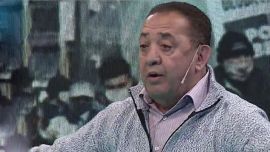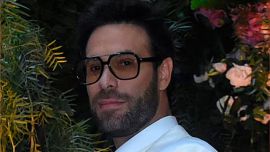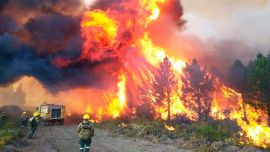Argentina hardened its diplomatic stance against Russia’s invasion of Ukraine this week, joining 140 other nations in a vote condemning Moscow’s “aggression” and calling for an immediate ceasefire.
In an extraordinary session, the UN General Assembly on Wednesday overwhelmingly adopted a resolution that "demands" Russia "immediately" withdraw from Ukraine – a powerful rebuke of the invasion by a vast majority of the world's nations.
After more than two days of extraordinary debate, which saw the Ukrainian ambassador accuse Russia of “genocide,” 141 out of 193 United Nations member states voted for the non-binding resolution. Thirty-four members, including China, Nicaragua, El Salvador and Iran, abstained with just five voting against (Russia, Belarus, North Korea, Eritrea and Syria).
The condemnation of the “invasion” by Argentina’s government, which co-sponsored the UN declaration, underlines the shift in position by the Alberto Fernández administration over the past week. It follows hot on the heels of a call from Foreign Minister Santiago Cafiero for an “immediate ceasefire” before the UN’s Human Rights Council on Monday.
The country’s representative to the UN, María del Carmen Squeff, had already anticipated the Fernández administration’s position in a speech on Tuesday.
"Argentina condemns the invasion of Ukraine and reiterates to the Russian Federation that it should immediately cease the illegitimate use of force, as well as military operations on Ukrainian territory," she said before, in a veiled allusion to the Malvinas (Falkland) Islands, stressing respect for the principle of territorial integrity.
Regional angle
The debate prior to the UN vote underlined divisions in Latin America on the conflict, with Cuba, Venezuela and Nicaragua defending Russia and President Vladimir Putin’s decision to attack Ukraine, while attacking the "double standards" of the international community.
The three countries, Russia's allies in the region, argued that NATO's enlargement into the former satellite countries of the defunct Soviet Union in Eastern Europe explained Putin’s decision to order devastating attacks on Ukraine and its major cities.
The most forceful defender was Cuba's ambassador to the UN, Pedro Pedroso Cuesta, who said that criticism of the Russian government’s actions does not "take into account the legitimate concerns of all parties."
"It is not possible to examine the current situation in Ukraine with rigour and honesty without carefully assessing the factors that have led to the use of force," such as the United States’ "determination" to continue NATO's progression towards the borders of the Russian Federation and the "delivery of modern weapons" to Ukraine that amount to "a military encirclement," he argued.
"Cuba rejects the hypocrisy and double standards" of the international community, said Cuesta, whose words were echoed by Nicaragua’s representative Jaime Hermida Castillo.
"The UN cannot be used to deepen conflicts," said their Venezuelan counterpart Samuel Moncada, whose country was unable to vote as it has a debt of around US$40 million with the multilateral organisation.
On the other side of the debate, a dozen countries from Latin America (including Argentina, Colombia, Chile, Costa Rica, Ecuador, Uruguay, Panama, Guatemala, Peru and Paraguay) chose to co-sponsor the resolution tabled by the Europeans and Ukraine, indicating their stance prior to the vote.
Colombian Vice-President and Foreign Minister Marta Lucía Ramírez, one of the most senior officials to address the extraordinary meeting, called for Russia to face up to its "humanitarian, economic and legal responsibilities."
Mexico and Chile also backed the vote, with Brazil saying that it was time for officials to work together to save Ukraine from “the scourge of war” and save lives.
– TIMES/AFP






















Comments